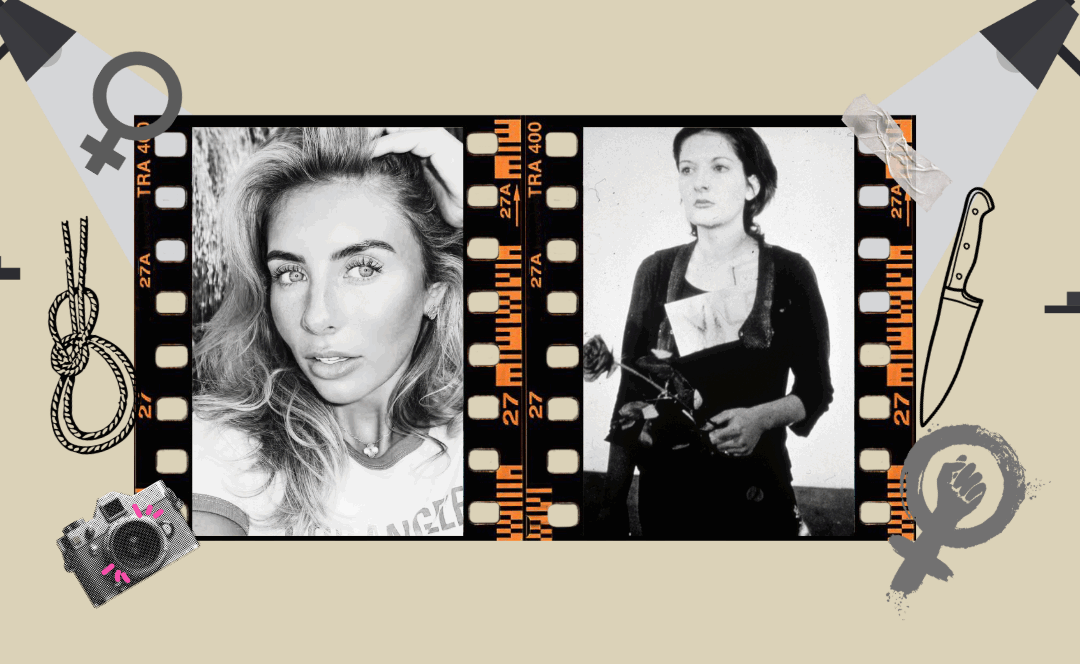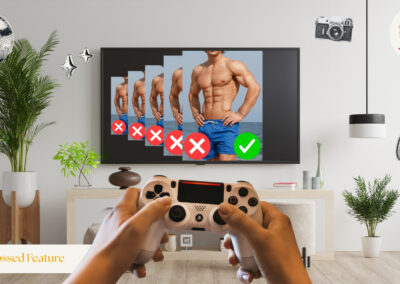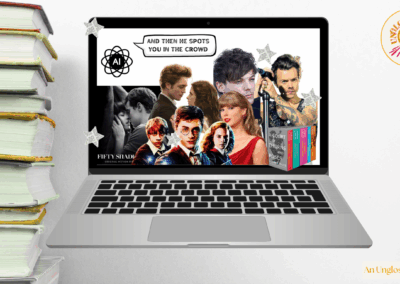As our FYP is overrun by toxic masculinity disguised as inspiring advice, Unglossed breaks down the impact entrepreneurial influencers are having on young men.
From Andrew Tate, to Simon Squibb and Iman Gadzhi, it’s impossible to escape the ongoing pressure to ‘escape the matrix’ and ‘make money online’. And it’s getting exhausting. The messaging is: if you work for someone, you’re a mug, if you earn less than 20 grand a month, you’re a mug, if you must ask for permission to travel, guess what? You’re a mug!
The pressure it puts on young men is undeniable, and honestly I can’t help but presume it’s incredibly over glamorised. Not to patronize these clearly incredibly intelligent people, but do they not recognise that if every single person wanted to own a business, and was driven by money and freedom, then there would be no one left to work for them? The idea that everyone should be their own boss would completely derail the hierarchy systems that have existed with the working world forever.
And absolutely, at Unglossed we’re all for a healthy work life balance, and taking control of your own narrative, but suggesting that young boys don’t need school or qualifications completely misses the very significant point which is- starting a business takes a lot of drive, work, dedication, sometimes privilege and an element of luck. So it’s not a quick fix to stop you having to finish your Spanish GCSE.
And it’s even coming from the kind of boys you went to school with. They create these videos shaming boys for not living their best entrepreneurship life in Thailand or Dubai. One boy on my FYP said he left his finance job to manage Only Fans models. And whilst I’m not going to judge him for his choices, I’m also not comfortable with him judging others who have made different ones.
We spoke to Kirsty, a social worker based in the North East. She cannot give her full name because of confidentiality concerns, but she works closely with teenagers and children in her local community.
“We have a major concern about the narrative that currently exists online for young men. What could be inspiring for some, puts insane pressure on others, who are constantly dealing with not feeling good enough.
“It’s easy to neglect the mental health of men, because there is still a pre-existing pressure on men to hide their feelings. The idea that men who can’t provide for women, own their own business or have this dream life are ‘low value’ is something that schools and social care teams are trying to combat, but it’s so hard. Young boys are so fixated on these ideas, it can be hard to assure them that other pathways aren’t settling.”
The chart topping TV show Adolescence which had 2.4 million views in just four days, raised some similar concerns to Kirsty. Exploring the messaging that is currently prevalent on TikTok, the tv show has opened many parents’ eyes to the dangers of social media. Exploring topics such as ‘Incel’ culture, toxic masculinity, online radicalisation and violence against women, the show has inspired wider discussions about the dangers of certain creators. Even getting a mention in Parliament, Kirsty describes the show as ‘a wake up call for the UK.
For more information about concerns raised in the show, here are some resources.
Kirsty explains “Lots of the people I work with are incredibly vulnerable, and sometimes lack positive role models. Meaning they are really susceptible to the things they see online. And even though these creators might genuinely think they are being inspiring, actually they are really promoting toxic masculinity as an answer to feeling lost or unsure.
“Within reason, anyone can go online and say whatever they want. There is no vetting process, so it gives a platform to anyone. That means we have no way of knowing if what they claim is true, or just made up to get their likes and views. I can see and understand that, but not all young people can.”
Kirsty says she has had multiple young boys say that they want to move abroad and make money online, so they don’t need school.
“Whilst I want everyone to be ambitious and dream big, I don’t want them to place their value in things like money or fast cars. I hate the language that men often use in these videos, it’s very aggressive and nasty. They basically say if you aren’t living like me, you will never be happy. Celebrities couldn’t get away with saying stuff like that on a talk show, so why can these Tiktokers act like this with no consequences? And it’s not even without consequences, they actually get praise, likes and followers.”
And whilst majority of us are likely very much on Kirsty’s side of this argument, there are some positives to videos like this. Firstly, it can be inspiring. Seeing someone be open about their success, and offer valuable tips and advice to young people is amazing. Especially if you are from a family or area where entrepreneurship isn’t typical.
It also can be entertaining. A little bit like a reality TV show, watching a world so different from your own is really insightful, probably why Thailand villa tours and the odd day- in- the- life vlog gets millions of views. The difference is that whilst I’m nosy, I don’t want to be called a failure because my day consists of an office chair from 9-5, whilst you’re on a super yacht. Success looks different on everyone- a mantra these creators could do with hearing.
That being said, I still believe that the pressure has gone too far, and I’m becoming increasingly frustrated with these creators, who I think are doing young men a major disservice. I also can’t help but think that if women acted in this way, they would be dragged and cancelled left right and centre. Because nothing can turn the internet against a person faster than a woman who is proud of her success.
To me, the solution is to view these creators as made- up characters, because really that is what they are. They can’t seriously believe that everyone could, or in fact should live their lives like a ‘happy sexy millionaire’ (Steven Bartlett said it, not me).
Kirsty says “So much of what they project is an act, so whilst it’s hard, we need to encourage ‘normal’ men to be open and honest with each other both on social media and in real life. That will switch the focus from there being one version of success, and interrupt the toxic focus on male dominance and your financial status being the only value you have.
“Not everyone has to be their own boss, it’s plain and simple. I wish these men would learn that, take some responsibility and just shut up sometimes.”
If you liked this post then read ANDREW TATE AND HIS UNEXPECTED ALLIES or THE BILLIONAIRE BOYS CLUB next.











